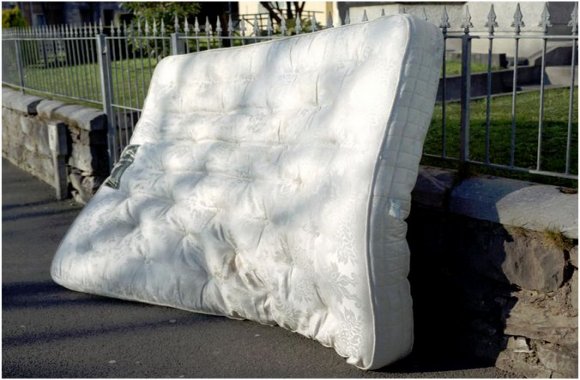
A case that predates ‘Mattress Girl’
A federal district judge who made it nearly impossible for male students accused of rape to argue they were victims of reverse discrimination by their colleges has been rebuked by his appeals court.
The 2nd U.S. Circuit Court of Appeals overruled the decision by Judge Jesse Furman of the U.S. District Court in Manhattan, an appointee of President Barack Obama, against an anonymous male student who said Columbia University violated Title IX in its sexual-assault proceeding against him.
The appeals court said Friday that Furman did not “accept the facts alleged [by ‘John Doe’] and construe ambiguities in the light most favorable to upholding the plaintiff’s claim,” as is required at an early stage of litigation, even if Doe’s claims turn out to be “self-serving and untrue.”
This trial ruling predated a much better known case against Columbia by a male student who was accused of rape by fellow student Emma Sulkowicz. She earned the nickname “Mattress Girl” by carrying her mattress around campus to protest Columbia’s exoneration of him.
Paul Nungesser later sued Columbia for facilitating “gender-based harassment” against him by Sulkowicz and others. That suit was dismissed earlier this year.
Nungesser then filed another suit arguing Columbia’s gender-based misconduct policy functionally “excludes the possibility of male victims and female perpetrators” – calling himself a victim of Sulkowicz’s campaign to get him expelled despite his exoneration.
Ignored Doe’s witnesses, botched the evidence after Columbia faced protests
Doe had claimed the female student approached him while he was studying late one night, they took a walk and discussed “hooking up,” and she suggested having sex in her suite bathroom so her ex-boyfriend (Doe’s roommate) wouldn’t find out. She fetched a condom from her room before the bathroom sex.
She accused him four months later at the start of the new academic year. The Columbia Title IX investigator, Jilleian Sessions-Stackhouse, ignored Doe’s witnesses, did not inform him of his rights as an accused student in the process, and questioned him in a way “calculated to elicit a confession,” while sympathetically guiding the female through the process.
MORE: Judge dismissed Columbia student’s lawsuit days before ‘Mattress Girl’ suit
Sessions-Stackhouse did not record the interviews. Doe claimed that her notes of his interview falsely portrayed what he had said, and her report ultimately portrayed him as “having coercively pressured” the female into sex for weeks, despite “conflicting information” from her friend about that night.
The investigation happened right after student activists had shamed Columbia for not taking rape allegations seriously – allegations that made the press and which specifically criticized Sessions-Stackhouse, the 2nd Circuit said.
The appeals court found that at least some of Doe’s claims “support the inference of sex discrimination”: that the investigator and hearing panel “declined to seek out potential witnesses” named by Doe, did not “act in accordance with University procedures designed to protect accused students,” and that everyone – including “the reviewing Dean” – reached judgments that were “contrary to the weight of the evidence.”
2nd U.S. Circuit Court of Appeals reinstates reverse-discrimination suit against Columbia University by The College Fix on Scribd
Columbia’s reaction to earlier criticism of its handling of female students’ rape allegations – including President Lee Bollinger calling a “University-wide open meeting with the Dean to discuss the issue” – pushed Doe’s complaint over the goal line of sufficiently alleging he faced “bias on account of sex.”
“Against this factual background, it is entirely plausible that the University’s decision-makers and its investigator were motivated to favor the accusing female over the accused male,” the decision reads, “so as to protect themselves and the University from accusations that they had failed to protect female students from sexual assault.”
‘Fear of negative publicity’ is not a ‘lawful’ motivation for sex bias
The 2nd Circuit specifically rejected the reasoning of Judge Furman in finding that Columbia was “more plausibly” motivated by “lawful, independent goals” – taking rape allegations seriously and treating accusers “with a high degree of sensitivity” – than by sex discrimination.
Furman was required to “draw reasonable inferences in favor of the sufficiency of the complaint,” the three-judge panel said. (The panel included one of Furman’s colleagues from the Southern District trial court, John Koeltl, “sitting by designation.”)
MORE: Title IX has nothing to do with sexual behavior, judge rules
The 2nd Circuit noted that Doe was a varsity athlete when he was accused, making him an even bigger target for allegations.
“There is nothing implausible or unreasonable” in Doe’s claim that the panel was biased against him “to avoid further fanning the criticisms that Columbia turned a blind eye to such assaults” by male athletes, the decision reads.
In a footnote, the panel further criticized Judge Furman. The trial court had said that the “fear of negative publicity or of Title IX liability” was an appropriate, sex-neutral motivation for Columbia to discriminate against Doe.
“A defendant is not excused from liability for discrimination because the discriminatory motivation does not result from a discriminatory heart, but rather from a desire to avoid practical disadvantages that might result from unbiased action,” the decision reads.
Even if a university has adopted a temporary “policy of bias favoring one sex over the other … in order to avoid liability or bad publicity,” it “has practiced sex discrimination,” the panel said bluntly.
The 2nd Circuit said Sessions-Stackhouse also had reason to discriminate against a male, given criticism of her prior investigations of male athletes. It said “she allegedly had significant influence, perhaps even determinative influence,” over the results even if she didn’t make the final decision.
Columbia University told The College Fix it does not comment on ongoing litigation.
MORE: Exonerated student sues Columbia University again over ‘Mattress Girl’ protests
Like The College Fix on Facebook / Follow us on Twitter
IMAGES: Shutterstock, Lucas Shaw/Flickr






Please join the conversation about our stories on Facebook, Twitter, Instagram, Reddit, MeWe, Rumble, Gab, Minds and Gettr.